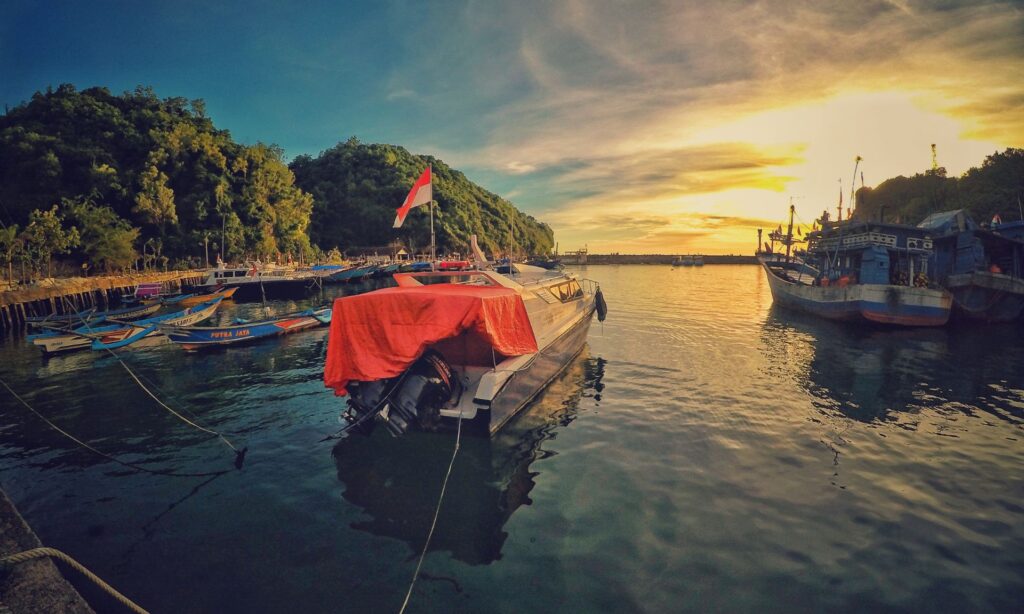Introduction
Indonesia, with its stunning landscapes, rich cultural heritage, and warm hospitality, is a popular destination for travelers from around the world. While the country offers a plethora of attractions, it’s essential to prioritize safety during your visit. Like any other destination, Indonesia has its unique challenges, but with proper preparation and awareness, you can enjoy a safe and memorable trip. In this article, we will explore the safety aspects of traveling to Indonesia and provide essential tips to ensure a secure experience.
Safety Tips
Research and Plan Ahead:
Before embarking on your journey, conduct thorough research about the regions you plan to visit. Stay updated on travel advisories and any potential risks. Familiarize yourself with local customs, laws, and emergency contact information.
Health Precautions:
Ensure you are up-to-date on routine vaccinations and consider additional vaccines such as Hepatitis A and B, typhoid, and Japanese encephalitis, depending on the areas you intend to visit. Carry a basic medical kit with essential medications and consult your doctor for any specific health concerns.
Travel Insurance:
Invest in comprehensive travel insurance that covers medical emergencies, trip cancellations, and theft. Confirm that the policy includes coverage for the activities you plan to undertake, such as water sports or trekking.
Stay Informed about Local Conditions

Keep yourself informed about local weather conditions, political situations, and any potential natural disasters. Indonesia is prone to earthquakes and volcanic activity, so stay updated on the current status of active volcanoes and follow local advice.
READ ALSO: Discover Indonesia: Top 5 Must-Visit Places and Activities
Transportation Safety:
Use reputable transportation services and prioritize safety over cost. Be cautious when using public transportation, especially in crowded areas. Follow seatbelt and helmet regulations, and avoid traveling at night in poorly lit or unfamiliar areas.
Beware of Scams:
Exercise caution when dealing with strangers, and be aware of common scams targeting tourists. Always use authorized tour operators and transportation services. Avoid sharing personal information with strangers and be skeptical of unsolicited offers or deals.
Stay Hydrated and Practice Food Safety:
Drink bottled or purified water and be cautious about the hygiene of street food vendors. To prevent foodborne illnesses, opt for freshly cooked meals, avoid undercooked meat or seafood, and peel fruits before eating.
Respect Local Customs and Laws:
Indonesia is known for its diverse cultures and religions. Respect local customs and dress modestly, especially when visiting religious sites. Familiarize yourself with local laws to avoid unintentional legal troubles.
Secure Your Belongings:
Keep your belongings secure and be mindful of your surroundings. Use a money belt or hidden pouch for valuables, and avoid displaying expensive items in public. Be cautious in crowded areas where pickpocketing may occur.
Emergency Preparedness:
Save local emergency contact numbers, including the nearest embassy or consulate, in your phone. Share your itinerary with a trusted contact and have a plan in case of unexpected situations.
While Indonesia offers an enchanting travel experience, safety should always be a top priority. By being informed, prepared, and vigilant, you can minimize risks and make the most of your journey in this beautiful archipelago. Follow these safety tips, stay aware of your surroundings, and immerse yourself in the diverse and vibrant culture that Indonesia has to offer.
Frequently Asked Questions
Q: Is it safe to drink tap water in Indonesia?
A: It is advisable to avoid drinking tap water in Indonesia. Stick to bottled or purified water to prevent waterborne illnesses. This precaution extends to avoiding ice in beverages from unknown sources.
Q: What vaccinations are recommended before traveling to Indonesia?
A: Routine vaccinations such as measles, mumps, rubella, diphtheria, tetanus, and pertussis are recommended. Additionally, vaccinations for Hepatitis A and B, typhoid, and Japanese encephalitis are often suggested, depending on the regions you plan to visit.
Q: Are there any specific safety concerns for solo female travelers in Indonesia?
A: Indonesia is generally safe for solo female travelers, but it’s essential to exercise the usual precautions. Dress modestly, especially in religious areas, and avoid poorly lit or secluded areas at night. Use reputable transportation services and accommodations to enhance safety.
Q: What should I do in case of a medical emergency?
A: Dial the local emergency number (112 or 118) for immediate assistance. Having travel insurance with medical coverage is crucial. Be aware of the location of the nearest hospitals or clinics, especially if you are in remote areas.
Q: Can I use my credit/debit cards in Indonesia, or should I carry cash?
A: While credit/debit cards are widely accepted in major cities and tourist areas, it’s advisable to carry some cash, especially in remote areas where electronic payment options may be limited. Inform your bank about your travel dates to prevent any issues with card transactions.
Q: Are there any specific customs or etiquette I should be aware of in Indonesia?
A: Respect for local customs is important. Dress modestly, particularly when visiting religious sites. It’s customary to remove shoes before entering someone’s home. Showing respect to elders is highly valued in Indonesian culture.
Q: What is the best time to visit Indonesia in terms of weather?
A: The dry season, generally from May to September, is considered the best time to visit Indonesia. However, it’s essential to check the specific weather conditions of the region you plan to visit, as the climate can vary across the archipelago.
Q: Are there any precautions to take regarding wildlife in Indonesia?
A: Indonesia is home to diverse wildlife, including some species that may pose risks. Avoid contact with unknown animals, especially in remote areas. If you plan to explore natural habitats, seek guidance from local authorities or tour operators to ensure a safe experience.
Q: How can I stay informed about local conditions and travel advisories during my stay?
A: Regularly check travel advisories from reliable sources such as government websites or international travel forums. Stay updated on local news, weather conditions, and any potential risks, especially if you plan to travel to different regions within Indonesia.
Q: What should I do if I encounter language barriers during my travels in Indonesia?
A: English is widely spoken in tourist areas, but learning a few basic Indonesian phrases can be helpful and appreciated by locals. Utilize translation apps, and don’t hesitate to use gestures to communicate. Locals often appreciate the effort to understand and respect their culture.
Conclusion
In conclusion, traveling to Indonesia can be a rewarding and enriching experience, but like any destination, it requires careful preparation and awareness of safety considerations. By following the provided safety tips and staying informed, you can significantly reduce potential risks and ensure a secure journey.
Remember to prioritize your health by staying hydrated, adhering to food safety practices, and being proactive about vaccinations. Invest in comprehensive travel insurance, familiarize yourself with local customs and laws, and take necessary precautions when it comes to transportation and personal belongings.
Indonesia’s diverse landscapes and vibrant cultures offer a unique adventure, and respecting local customs enhances the overall travel experience. Stay connected with emergency contacts, be prepared for unexpected situations, and enjoy the beauty and hospitality that Indonesia has to offer.
By embracing a proactive approach to safety and cultural sensitivity, your trip to Indonesia can be not only enjoyable but also a memorable exploration of this captivating archipelago. Safe travels!
In another related article, Indonesia Trips: Your Budget Travel Guide to Explore the Archipelago







